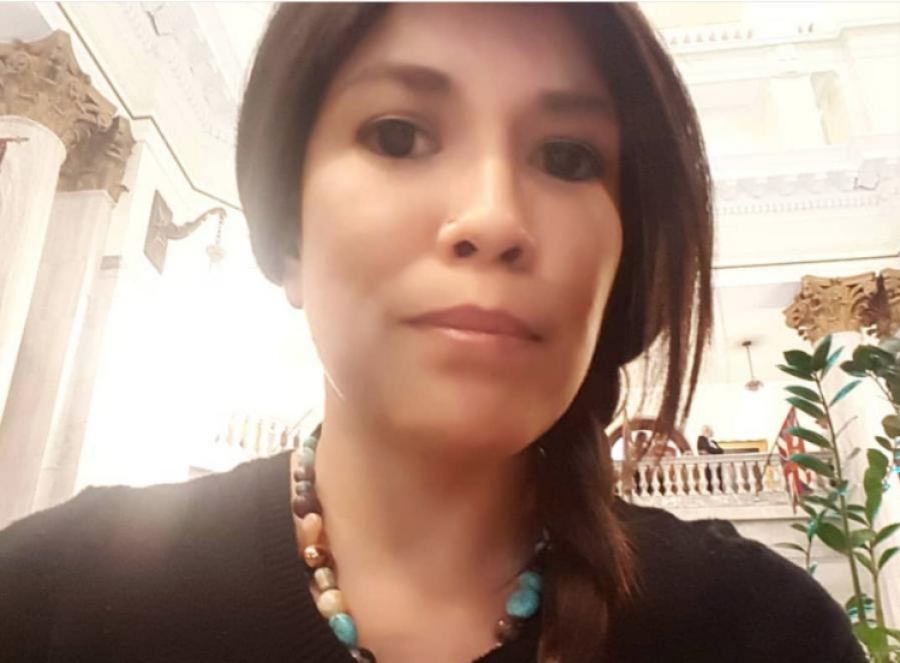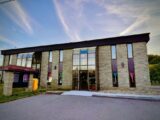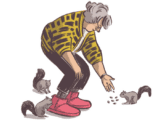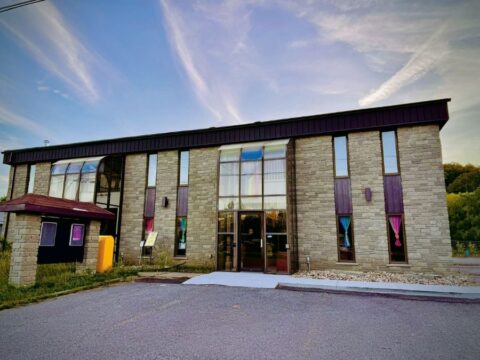I am Nehiyawak Iskwewak from Pelican Narrows, Saskatchewan. I come from a line of ceremony peoples in Treaty Six territory on Turtle island.
The last time I was inside the Alberta Legislature was for a field trip in junior high. I don’t hold onto many memories of growing up, but I do recognize the feeling of alienation and not being in the right place. It sits within me, making me uncomfortable and filling me with anxiety. I’m glad I had my friend with me whom I found on transit.
You may unsubscribe from any of our newsletters at any time.
“You going to ‘the apology’?”
“Yes ma’am.”
I feel a surge of calm. Nehiyawak always find each other in the city. We talk about medicine skirts, ceremony, the want to return to our respective education – anything but our commonality of being survivors of the criminal act known as “The Sixties Scoop.”
I was taken away from my mother and my siblings as an infant and placed into foster care in Prince Albert, Saskatchewan, until I was four years old. That’s when I was permanently placed with my white parents and two brothers.
I cannot recall many memories of this time, but an old book of photographs shows me that I was content as a child. They don’t show how I fought with my new ‘mother,’ literally yelling how much I wanted my real mother. They don’t show my alienation and loneliness. They don’t show my impending anxiety that became a practice of self-harm. Photographs have a way of telling half-truths, which is why Indigenous prefer oral history.
We get off the bus downtown on Jasper Avenue and walk to the Legislature, weaving our indigeneity through a crowd of government workers and food trucks. I watch the fountains of clean water sprout up into a hot sun as we pass.
The dome of the Assembly becomes more visible as I walk more upright and with pride as I notice people eyeing my medicine skirt. I feel my ancestors with me and I feel as though I finally have a right to walk here unabated and with permission. I’ve never lost the notion of whom these lands belong to.
As we enter, I smell sage and smudge myself, filling my lungs with that good medicine. My new friend is right by me and she’s a mixture of nerves and giddiness. I’m anxious, too, as I search for other familiar brown faces from my community. I discover they’re upstairs in an invite-only gallery. We sit down below in front of a large television screen and wait.
It feels awkward being separated from friends I wish to support, but I’m here for them. The sage dissipates into the galleries and I hug those I know and shake hands with new faces. I hear of an empty chair for anyone who could not attend. I feel as though I’m here for those people, too.

A line of media faces us – cameras angled on tripods and dangling from the necks of esteemed members of the press. I feel like we’re being used as emotional props to make the government appear more humane. I feel angry that there isn’t any hesitation or asking of permission to record our grief. Don’t they have enough already?
The television turns on and the crowd becomes attentive as the members of the Assembly introduce themselves and their respective parties. Premier Rachel Notley appears and starts to deliver her speech. I feel a lump in my throat and a familiar hotness rising in my body. My cheeks become red and I continue to bite my lip to try to stop tears from falling.
As she starts her now famous “we are sorry …” tears fall and I put on my sunglasses as I hear the shutters of the cameras go off. I try to remain dignified. Inside, I’m not feeling the apology as sincere but as empty words, just like when I heard then-Prime Minister Stephen Harper speak them for the residential schools.
I watch MLA after MLA say their tiny bits of acknowledgement and I’m angered. None are fighting for us, some are outright crooks and others would go on to say incredibly ignorant things in the media the day after. I feel empty and saddened.
The apology itself is short and lacks any emotion toward our collective grief. Empathy is missing. True feelings of regret and remorse for their negligence and criminal activities are non-existent. Interaction between Indigenous and political figures stifled. It feels as if they read from a piece of paper like kids doing school reports on a subject they didn’t ask for. Their words fall empty on me.
Politics and the human condition for Indigenous have never partnered well. Not through any fault of ours. Colonialism is only sorry that it didn’t eradicate us as was intended and that’s what this ‘apology’ feels like.
They stop talking and my friend and I exit the building quickly for fresher air and to be greeted by the warm sun. I see the various colours of medicine skirts and it brightens up my mood, making me proud again.
I watch as various Indigenous figures pose for their photo-ops and I feel connection to only one, the Chief of the Alexis First Nation. He always stops and shakes my hand. As an Iskwewak far from my home territory it makes me feel not so abandoned.
I listen to Adam North Peigan say that this apology is enough and for awhile I believe him. But deep down in my soul, where I carry my mother who was murdered before we were reunited, I don’t stay with his words. I feel a new sadness overcome me as I recognize that no amount of ‘I’m sorry’ can return the loss of my family or of my station as first-born and older sister. I didn’t get the opportunity to be the strong daughter to my mother and father, a doting niece to my aunties and uncles or time with my cousins. All the hard work of reweaving lost familial ties falls on me.
Many Iskwewak have the task of rebuilding our families and thus families at large. In my own journey, I have reclaimed family and my spiritual path. But just shy of a month, when I was to return to my community thereby receiving my colours, direction and spirit name, my family Elder walked on from this world to the next. It felt just like when I found out the time frame of missing out on reuniting with my birth mom. It saddens me to know my children and I won’t be blessed by the man who cared for so many in my family. But I also have a resolve to return and have this completed by his partner and wife.
Creator always has a plan we are told. Within me is everlasting hope for the returns of all families to their clans and totems across Turtle Island and that our resolve is what heals us. It won’t be the empty words that are fabricated to soothe the egos and minds of this colonial institution, which continues its war on our families via Children’s Aid, foster care, unfair judgements (like that of Colten Boushie, Tina Fontaine and my dear friend Bella Laboucan McLean) and attacks on our sacred land and waters via pipelines.
Until this colonial government stops these practices, stops taking our children illegally and without due process and starts acknowledging the ways we reconcile our own issues, then I feel this apology will be shelved much like the paper rolled up on my shelf from Stephen Harper.
All are our relations.
Aye hiy













